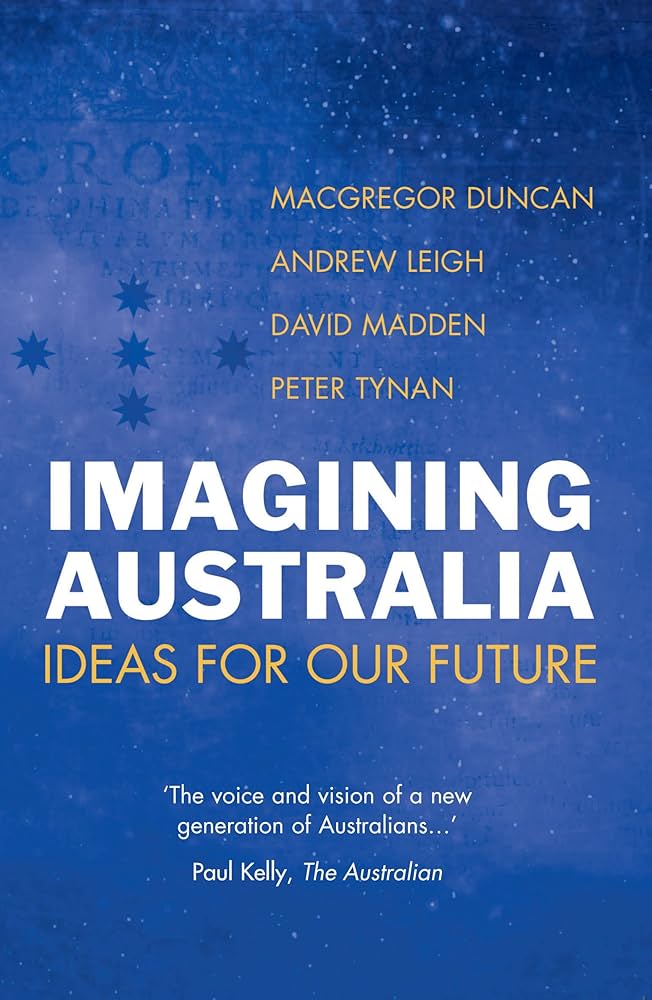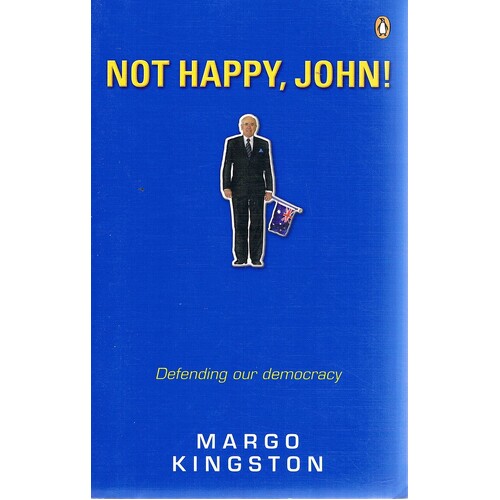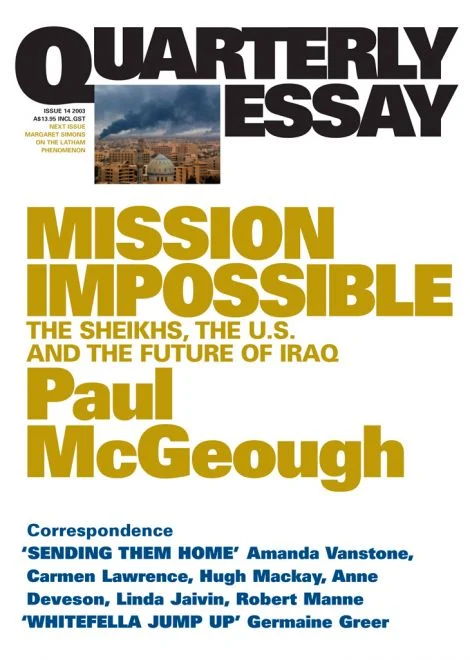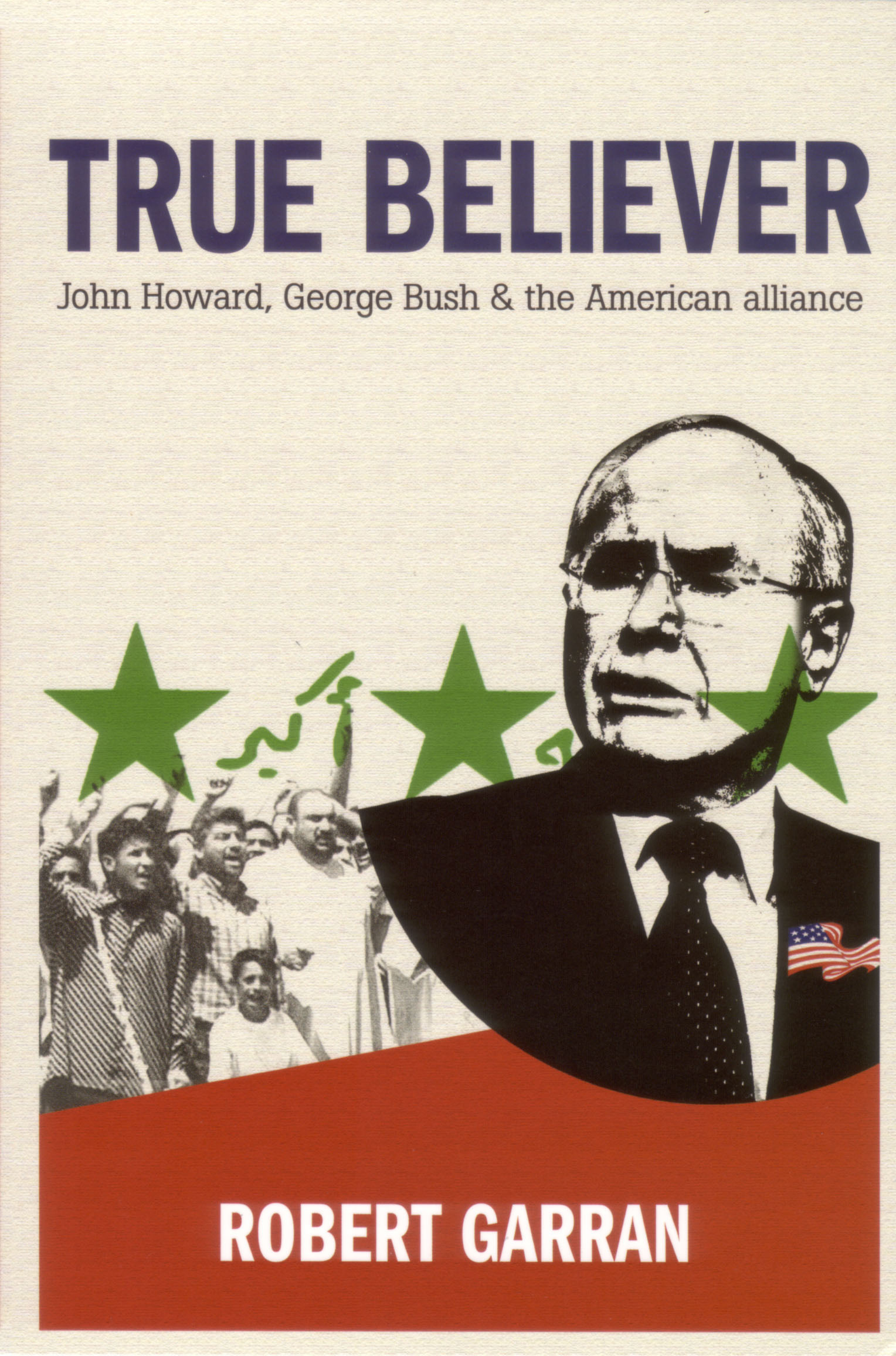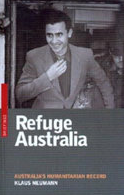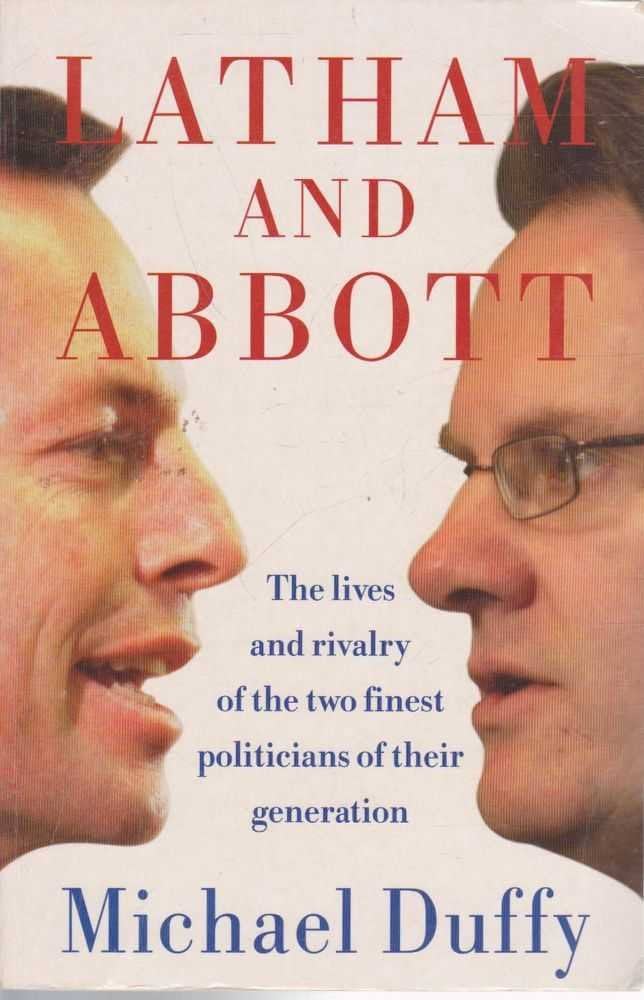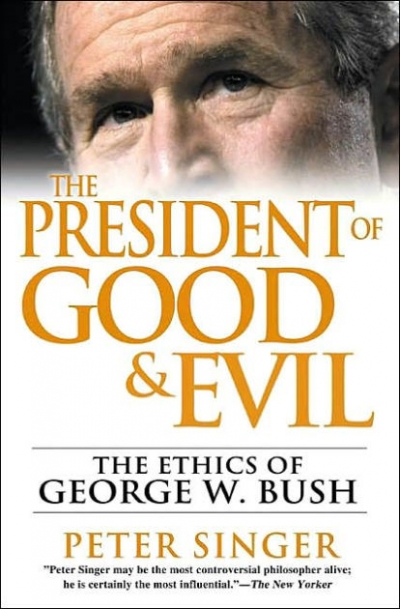Politics
Imagining Australia by Macgregor Duncan et al. & Restructuring Australia edited by Wayne Hudson and A.J Brown
Though reviewing books is a humble enough task, it frequently leads to elevated thinking. As I read these books, it occurred to me that, perhaps, unwittingly, they pointed to the ambiguous legacies of the Enlightenment. One of those legacies is found in the conventional political distinction drawn between ‘left’ and ‘right’; the other concerns the role of the expert.
... (read more)Not Happy, John! Defending Our Democracy by Margo Kingston & Axis of Deceit by Andrew Wilkie
Governments lie, as the veteran US journalist I.F. Stone used to remind us. Worse than that, some of them now defy with impunity the clearly stated wishes of the majority – and international agreements, too. We seem to have entered an era in which the meaning of democracy is being alarmingly redefined. Let us hope it is merely a passing phase.
... (read more)Mission Impossible by Paul McGeough & Long Drive Through a Short War by Peter Wilson
These two books represent two different stages of what will be remembered as the US occupation of Iraq. Firstly, we have senior News Limited correspondent Peter Wilson’s account of his somewhat hapless adventures on the road to Baghdad during last year’s invasion. He begins by listing the clothing and equipment he plans to take with him, and by explaining why he doesn’t have an opinion on the conflict. He also lets us know that he has a reputation as a ‘hard man’ around the office.
... (read more)Hannah Arendt called her reflection on the Pentagon papers – the US Department of Defense’s secret, then leaked, documentary investigation into the American intervention in Vietnam – ‘Lying in Politics’. As Arendt pointed out at the beginning of her essay: ‘the basic issue raised by the papers is deception ... The famous credibility gap, which has been with us for six years, has suddenly opened up into an abyss. The quicksand of lying statements of all sorts, deceptions as well as self-deceptions, is apt to engulf any reader who wishes to probe this material.’
... (read more)True Believer: John Howard, George Bush and the American alliance by Robert Garran
There has been a wide range of books published on Australian and US foreign policy since September 11, but few link these issues as coherently as Robert Garran’s True Believer. This essentially journalistic account of the road to war in Iraq is approachable and includes valuable insights that will make it a catalyst for further debate on Australia’s foreign policy. In eleven concise chapters, Garran documents the close affinity between George W. Bush and John Howard, the case for and against war in Iraq, and the method by which Howard’s ‘new nationalism’ has become entwined with the Bush Doctrine. In joining the chorus of criticism against Howard’s foreign policy, Garran will raise the ire of true believers of Howard’s ilk. For those of the opposite persuasion, and those who inhabit the vast middle ground of politics, Garran eloquently details the weaknesses in the US case for war in Iraq and in Howard’s support of Bush. The practical and ethical dilemmas raised by pre-emption are exposed, as is the uncritical support for the ANZUS alliance.
... (read more)Refuge Australia: Australia’s humanitarian record by Klaus Neumann
Klaus Neumann’s book is the latest in the ‘Briefings’ series from the Institute for Social Research at the Swinburne University of Technology, which explores ‘social, political and cultural issues in contemporary Australia’. This book complements the earlier one in the series, Spencer Zifcak’s Mr Ruddock Goes to Geneva (2003). With access to the National Archives and an acute curiosity to inspect files marked ‘not yet examined’, Neumann sets out to debunk assumptions about Australia’s response to refugees and asylum seekers in the past. He confines himself to case studies pre-dating the formal abandonment of the White Australia Policy, which limited and focused Australia’s response to refugees and asylum seekers.
... (read more)Latham and Abbott by Michael Duffy & Australian Son by Craig McGregor
The two finest politicians of their generation’: one can imagine Peter Costello choking over his cornflakes as he reads the cover blurb of Michael Duffy’s new book. The juxtaposition of Mark Latham with Tony Abbott will be taken as a shrewd journalistic punt on post-Howard politics. Many believe that John Howard is staying around long enough to ensure that Abbott replaces him.
... (read more)A Foreign Affair: A passionate life in four languages by Valerie Barnes
Any life, even the most unadventurous, can be made interesting in narrative if it is artful and well written. Valerie Barnes has had a fascinating life if the criteria are travel and meeting people from other cultures. But really, these are not enough to make an engaging memoir. There is a need for shapeliness, for an elegant prose style and, most of all, for a strong subjectivity in the narrating voice. Sadly, these are seriously lacking here. The failure to interpret and filter the meaning of the lived experience through a powerfully established speaking subject leaves Barnes’s life story strangely unrealised. Perhaps this bears out Sidonie Smith’s suggestion in A Poetics of Women's Autobiography (1987) that there is often in women’s life writing a ‘self-effacing speaking posture’ negating ‘the ambition inherent in the presumption of writing her story at all’.
... (read more)The President of Good & Evil: The ethics of George W. Bush by Peter Singer
On the face of it, this book represents a strange project: to elaborate for the reader’s consideration the moral beliefs of a man whom the author judges (and judged in advance, one suspects) to be shallow, inconsistent, lacking moral and intellectual sobriety, and to have failed so often to act on the moral principles he repeatedly professes that he can fairly be accused of hypocrisy ...
... (read more)At times like these, we would be churlish to forget how much we have to thank Americans for. Apart from anything else, they have enriched the language with the enviable expressions and patentable phrases that other English speakers, even when they are irritated, still imitate. American English is usually empowered by both oral and moral certitude, even more so in wartime. ‘History,’ says President George W. Bush portentously, ‘has called us into action.’ ‘The good guys are us,’ General Tommy Franks memorably declares just before the invasion of Iraq, warning President Bush: ‘We’re going to be suboptimised.’ Donald Rumsfeld says his bombers aren’t running out of targets, Afghanistan is. He doesn’t want diplomacy to divert the US from the coming war, so his plan is ‘to dribble this out slowly’. Vice-President Cheney assures the Saudi Ambassador, Prince Bandar: ‘Once we start, Saddam is toast.’ Then, as the troops go in, ‘Just keep praying’, Condoleeza Rice urges her colleagues. ‘Mission accomplished’, the banner reads on 1 May 2003, on board the Abraham Lincoln. ‘Ladies and gentlemen, we got ’im,’ Paul Bremer hubristically tells the press after the capture of Saddam Hussein. But what CIA Director George Tenet calls ‘the price of being wrong’ is rising.
... (read more)

